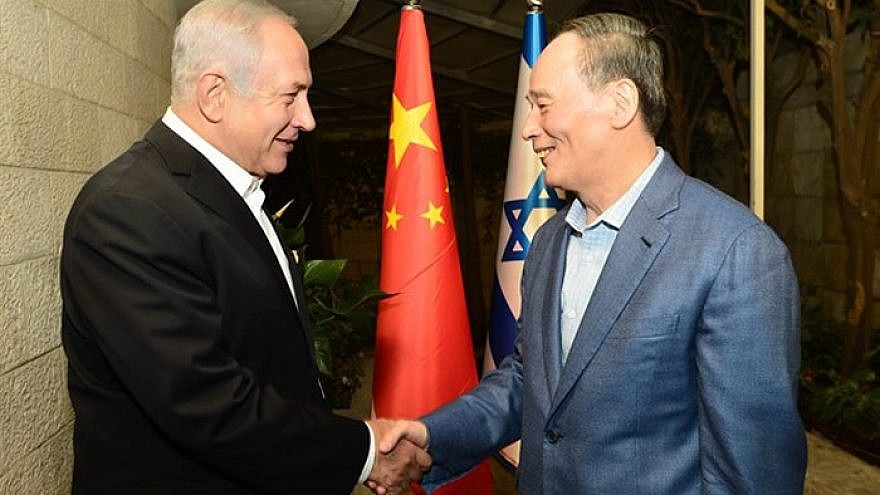As part of a four-day visit emphasizing talks on economic cooperation, Chinese Vice President Wang Qishan joined Israeli officials for a visit to the Western Wall in Jerusalem, despite official Chinese policy not recognizing Jerusalem’s Old City as part of Israel.
Wang is the most senior official to visit Israel in almost 20 years. Jiang Zemin, China’s then-President, arrived in Israel in 2000, the first Chinese president to ever visit the Jewish state.
Wang said he had read a lot about Jewish history, and was pleased to “see and touch history near the stones of the ancient wall.” As is customary among many visitors, he took a moment for personal prayer and stuck a note inside the cracks of the wall.
Israeli Prime Minister Benjamin Netanyahu hailed Wang’s arrival as the most important visit by a Chinese leader in the last 18 years,” adding “the fact that the Vice President of China came to Israel at my invitation for the Prime Minister’s Innovation Conference is a tremendous compliment to Israel and a reflection of the growing ties between China and Israel.”
A special dinner in Wang’s honor at the prime minister’s official residence was attended by Israel’s Ambassador to China Zvi Hefetz, Industry Minister Eli Cohen, Deputy Foreign Minister Tzipi Hotovely, National Security Council Director Meir Ben-Shabbat, the Prime Minister’s chief of staff Yoav Horowitz and National Economic Council Chairman Avi Simhon.
The Chinese delegation included Chinese Ambassador to Israel Zhan Yongxin, Science and Technology Minister Wang Zhigang, Vice Minister of Foreign Affairs Le Yucheng and Vice Minister of Commerce Qian Keming. Israel’s Foreign Ministry reported that China’s delegation included two ministers and 12 deputy ministers.
Wang is set to meet President Reuven Rivlin on Tuesday, co-chair a Wednesday meeting of the Joint Committee at the Foreign Ministry and co-host the fourth meeting of the China-Israel Joint Committee on Innovation Cooperation with Prime Minister Netanyahu later this week.
Some Israeli officials have expressed concern over warming relations between China and the Jewish state, saying the partnership might be a security risk that could compromise sensitive Israeli assets.
A recent report in The Economist revealed the dismay of an unnamed Israeli minister who said the cabinet and the National Security Council had no input in the recent hiring of a Chinese company to build a new commercial shipping facility in Haifa, where Israel’s allegedly nuclear-equipped submarines are docked.
Beijing bought weapons from Israel until 2005, when the sales were cut off due to the disapproval of the United States under President George W. Bush.
Israeli exports to China increased by 62 percent in the first eight months of 2018 to $3.5 billion according to Israel’s Central Bureau of Statistics. Imports from China increased by 10 percent, to $4.9 billion in 2018.


























